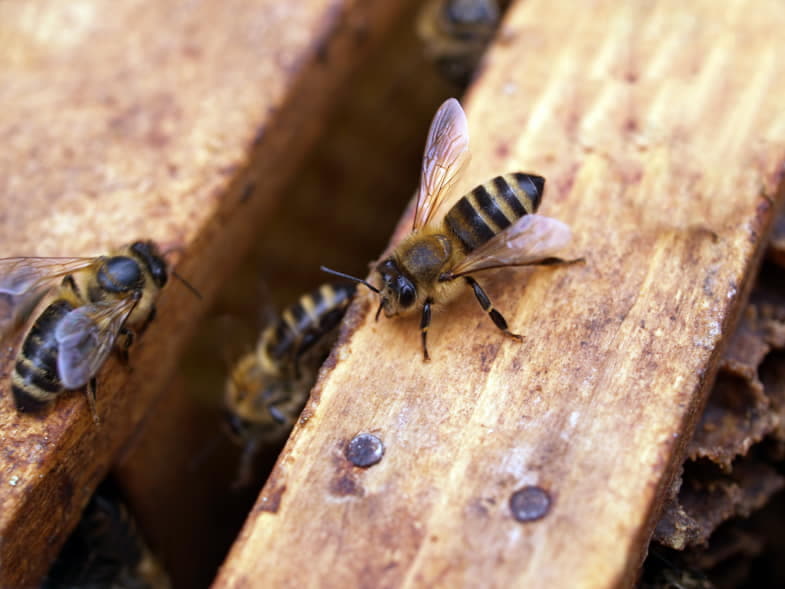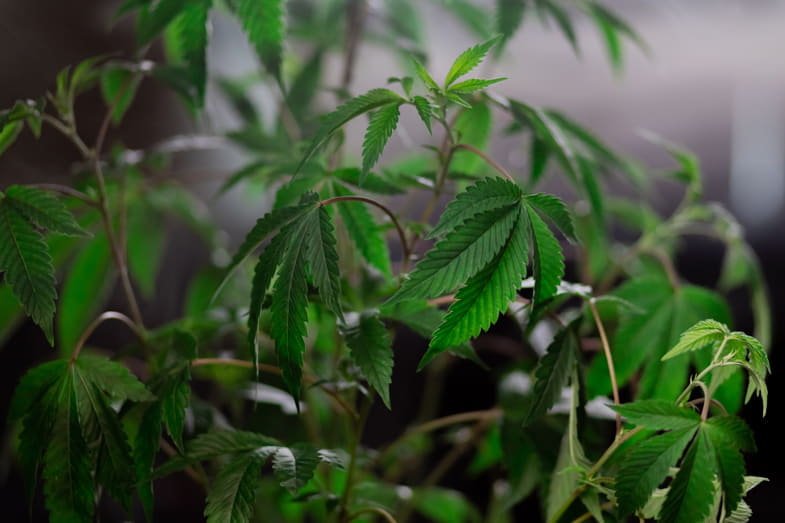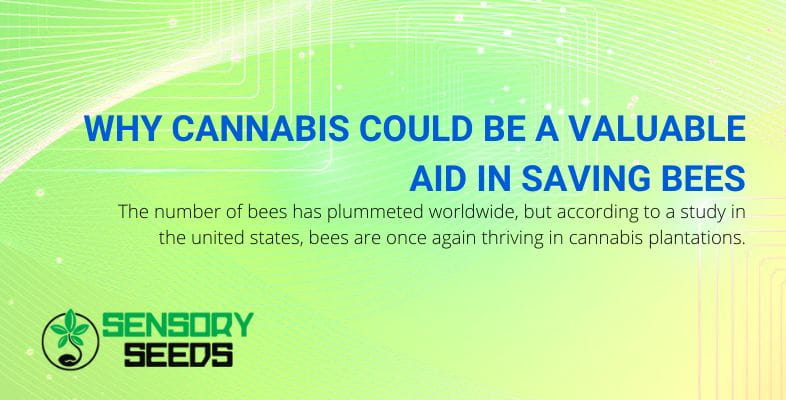Published on: 16/12/2022
The number of bees has plummeted worldwide, but according to a study in the united states, bees are once again thriving in cannabis plantations.
Over the years, the bee population has been drastically reduced worldwide due to human activities.
If bees were to disappear completely, the biodiversity of the entire planet would be compromised, as would human survival.
In fact, it is estimated that almost three quarters of the world’s agricultural production depends on these insects.
However, a recent study in the United States suggests that cannabis plantations provide the ideal environment for these precious insects to save and thrive.
So, is there still time?
Read also: Cannabis for older people: can it really be good for their health?
Are bees becoming extinct?
The consequences of global warming unfortunately also include a drastic decline in the number of bees.
The causes of the death of these insects that we have been witnessing for years are due to man’s activities on the environment and, in particular, the deterioration of their natural habitat on earth, pollution and the massive use of insecticides and pesticides in agriculture are the main contributors.
It is estimated that in five years up to 10 million beehives have been lost worldwide, including 200,000 in Italy alone. This worrying phenomenon is so widespread that a term has been coined to describe it: Colony Collapse Disorder.
This scenario endangers not only the future of beekeeping, but of the entire agricultural sector, as more than 75% of the world’s food crops depend on their labor, i.e. pollination, for their yield and quality.
Bees are, in fact, pollinating insects, whose activity ensures the pollination of plants and the emergence of various crops, thus preserving habitats and the living species they support.
It is therefore understandable how the killing of these insects can threaten our food security.


Scientific research linking cannabis to bees
The good news comes from the United States, where a recent study by Cornell University has found that bees have begun to spread again in the United States thanks to the multiplication of cannabis plantations where they find refuge.
Therefore, the expansion of marijuana fields after legalization (at the time of writing, a total of eleven US states have legalized its cultivation) is helping to save these insects and recover their populations.
According to research, up to sixteen different species of bees have spread in the first few years of marijuana legalization. Therefore, thanks to cannabis pollen, bees have once again proliferated.
It should also not be forgotten that marijuana cultivation is done without the use of chemicals: special insects are often used to eliminate hemp parasites. This protects the health of the end consumer and, at the same time, the health of the bees that feed on the pollen produced by the marijuana plants.
However, the US research is not the only study linking cannabis and bees.
Research conducted by the Maria Curie-Sklodowska University in Lublin seems to suggest that cannabis extract may have beneficial effects on bees exposed to pesticides used in agriculture. The insects tested survived as long as those grown in natural habitats uncontaminated by humans.
If confirmed, this finding would be significant. As we have said, protecting bees means safeguarding biodiversity and, at the same time, protecting food security.
According to a recent study by the Swedish University of Lund, there is a strong correlation between the health of bees and the quality of the fruit we eat. Consequently, the quality of the fruit we eat could be altered if bees are exposed to harmful substances.
This explains the increasing attention given to these precious insects and the numerous initiatives devoted to them. For example, the Food and Agriculture Organization of the United Nations (FAO) has established World Bee Day on 20 May every year.
Also, with the aim of preserving the species, more and more “ecological corridors” are being created, i.e. areas free of pesticides or other chemical treatments where these insects can feed and thrive.
Read also: What are (really) the effects of second-hand cannabis smoke?
The hemp situation in UK


Although legalization is not on the horizon, the marketing of “legal” cannabis, also called “light” because of its low THC concentration, has been allowed in UK since 2017.
Specifically, the law allows the cultivation (without prior authorization) of certain varieties of hemp, provided they are certified and have a THC content of less than 0.2%.
This law represented an important novelty in the European landscape, as it led to the birth (and rapid development) of a market for legal hemp derivatives, such as textiles and construction materials, oils for cosmetics, products for food uses, etc.
In conclusion, it is well known that hemp is a valuable and versatile natural resource. What we didn’t know was that among the many benefits of this plant could also be helping to restore bee populations around the world.
Looking for information on cannabis seeds marketed by Sensory Seeds? Check out our range of auto flower seeds.









